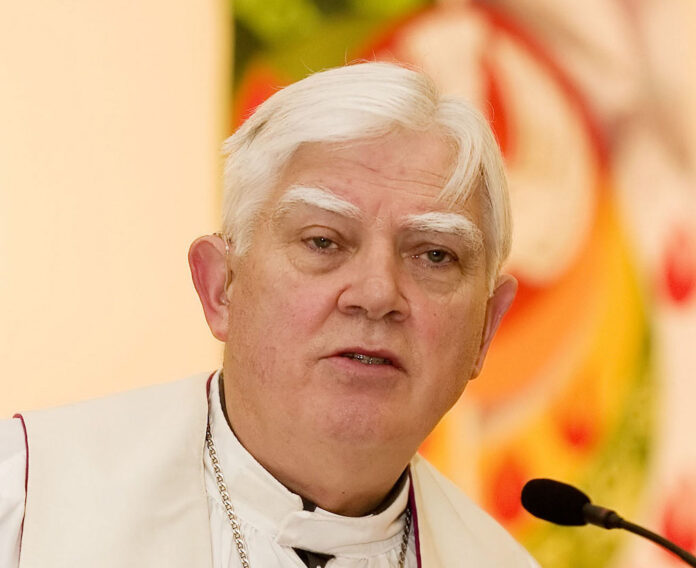A PRIEST from the diocese, who would be by and large acceptable to local priests, would have a big advantage in being appointed as the new bishop, according to retired Bishop of Killaloe, Willie Walsh.
“When I became bishop, I had a good knowledge; I knew every priest in the diocese personally and who was related to them reasonably well. That was an advantage. I knew the geography and demographics of the diocese.
“I can see situations where it would be wise to appoint a man from outside the diocese; where if there were divisions among priests, if the man [from the diocese] coming in had some baggage, which made him unacceptable to priests or people.
“Rome probably feels the need to shake up the Irish Church because of church child sex abuse scandals. Maybe, in the back of their minds, they felt a bishop coming in from the outside would take a stronger line on certain issues.”
The Papal Nuncio, who is one the key players involved in the appointment of Archbishop Kieran O’Reilly’s successor, has said it isn’t possible to provide an estimated waiting time before a new bishop is appointed.
The Most Rev Charles John Brown said the trend is to go outside the diocese for a successor but this is not written in stone.
“Every diocese is looked at individually, at its needs and strengths. Pope Francis tries to make the best decision based on the individual diocese. There are good reasons to appoint a bishop from inside and outside the diocese; both have their strong points. A priest from the diocese has a great connection with the people and a familiarity with the diocese. A priest from outside will not have made friends with priests in the diocese. He will be a fresh vision and priests who were left a bit on the outside are given a new lease of life. He has to learn but he doesn’t have any preconceptions.”
Despite his personal preference for a local bishop, Bishop Walsh acknowledges the trend over the last five years would indicate the new bishop is more likely to come from outside the diocese.
The new bishop is facing dwindling numbers of people attending church, a reduction in the number of available priests, while their age profile is getting much older, as well as diminishing Church finances.
Bishop Walsh referred to the distinct lack of people in the 15 to 40 age group attending mass.
“Christianity is not all about numbers attending church, even though it gives some indication of commitment to the Church. My first thing is not I am a Catholic but I am a follower of Jesus Christ,” he said.
With just one ordination next June, there will be no new priests for at least six years, as no-one has started vocational training. He warned parishioners are facing the prospect where there will not be a weekend mass in every church, particularly in smaller parishes, such as Broadford, where there are three churches.
He said the issue of social justice is something that has to be seriously dealt with by society.
“This is a serious task facing the new bishop and it is why we have three lay people working across the diocese. There are far more lay people working on a voluntary basis than there was ever before,” he said.
A native of Ennis, Colin McGann has been editor of The Clare Champion since August 2020. Former editor of The Clare People, he is a journalism and communications graduate of Dublin Institute of Technology.



